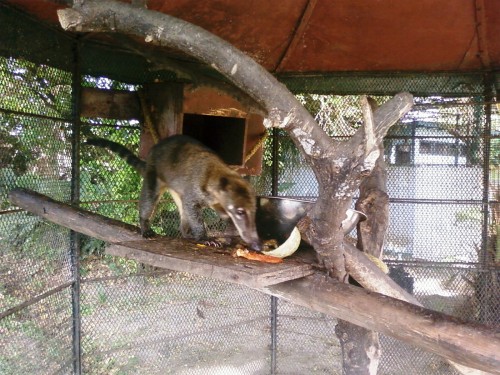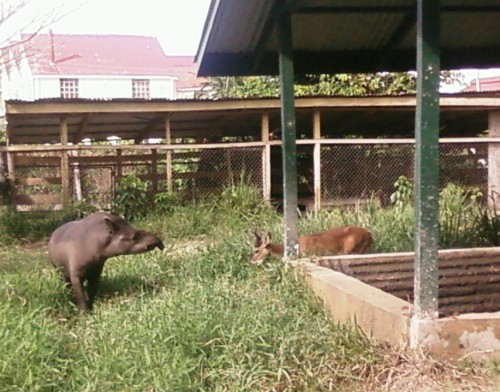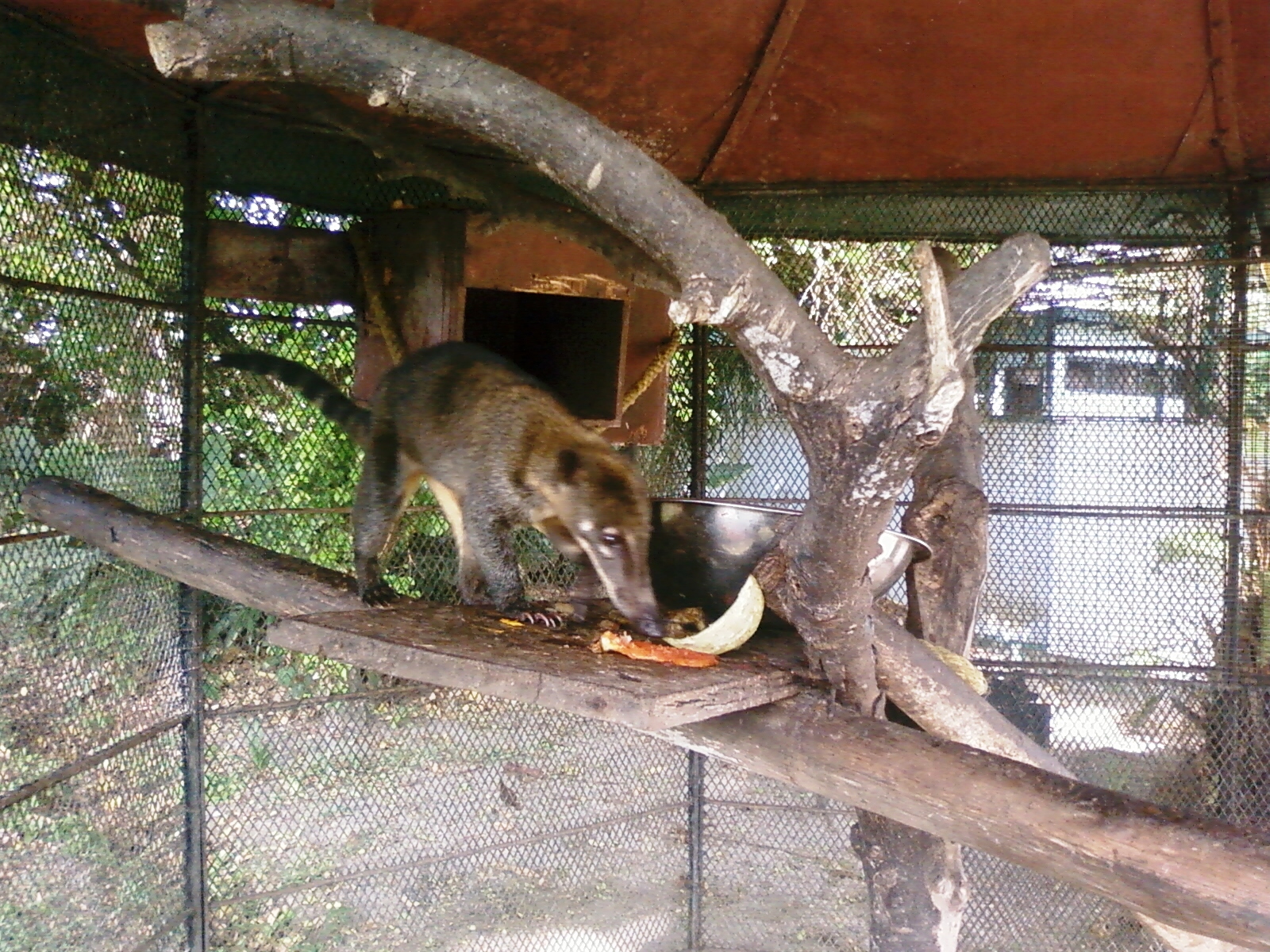– stays on for the love of it
By Sara Bharrat

Like the animals imprisoned at this crumbling place, the zookeepers are also being denied their rights. For more than a decade, love for these animals has helped Chip (not the zookeeper’s real name) to endure these harsh conditions.
“The animals,” Chip says while sweeping a cage. “I have a soft spot for the animals. Sometimes I get angry but I feel sorry for the animals, because they’re my friends. I stay here to take care of them and it prevents me from doing something better to make more money.”
Chip is wearing black pants, a t-shirt, long boots and is working with a broom made from the stems of coconut branches. Gloves or even a mask for the dust are not luxuries the Zoological Park offers Chip and other zookeepers.
Shortly after 7am every day Chip, a naturally friendly person, greets everyone while walking to the zoo. Chip is expected at work by 7.30 am. The first thing Chip does is change into the limited gear provided by the zoo.
There is an old building in the compound – it’s made of clay bricks and once housed a medical facility –where the male zookeepers change. The zoo has two female keepers, Chip says, and they have no changing room either. These women change into their shirt, pants and long boots behind some cage or the other in the compound.
“Anyone passing can see the women changing,” Chip explains while taking a break from sweeping the cage, “and it isn’t fair that the women can’t be allowed even that amount of privacy.”
As soon as Chip slips the long boots on it’s time to get into the cages. Every keeper is assigned a specific section. Chip’s allotment is expansive and is extremely difficult for a single keeper to manage. The keepers are not given sections according to their area of expertise. They have not been formally trained and many depend on their years of experience or some training course.
Chip has benefited from bits of training and after so many years of dealing with the animals has accumulated a wealth of knowledge. The first chore is to remove and clean the food pans from the cages, Chip says. While removing the pans Chip must observe the animals to see if they look sickly.
“When I leave here in the afternoon and I leave the animals well and healthy and then I come back I find one that died overnight I must feel the heat for it… I am held personally responsible for that animal’s death,” Chip explained.
After sweeping a bit more, Chip wipes away some facial sweat and walks out of the cage to get some fresh air. The interior of that particular cage has a partially concrete floor, poor lighting and is dusty.
Chip understands more than most that being a zookeeper is a demanding profession. However, Chip and the others have no amount of training and it is only when animals have reached an extreme state of illness that they are finally able to notice it.
“In this zoo there are no such things as monthly or even bi-yearly check-ups for the animal… The only time they have time with the animal is when one get really sick or when the animal die then they hurrying to cut the thing to see what it die from,” Chip said.
The fact that Chip and the others have no changing room, no lunchroom, not enough safety gear and get paid just over $9,000 weekly does not upset them as much as the $100 daily risk allowance they are paid. Georgetown zookeepers have no life, accident or any kind of insurance.
They work every day of the week and are only given their 21 days leave and are entitled to 14 days sick leave. When a zookeeper is absent, Chip explained, another must take on responsibility for that keeper’s section as well as his/her own.
Danger, while it is no stranger to any zookeeper, is more prominent in Chip’s life. People, Chip explained, often think that only very large carnivores are a major threat to workers. However, even a herbivore like a deer can seriously injure a zoo keeper.
“Not so long ago one of the deer butted a guy right in the side of his face and he went to the hospital and you know what? He didn’t get any money from the workplace for treatment. A senior employee lent him $10,000 for treatment,” Chip recalled. “That is plenty stupidness na?”
Despite the many issues which employees must deal with at the Georgetown zoo, Chip has no intention to leave. Over the years Chip has seen many employees pass through the organisation. Currently, there is a shortage of staff and Chip is concerned that if the few experienced people leave then the animals will be plunged into more misery.
The zookeepers and the other employees in their vicinity of the organisational structure, Chip said, are like one big family. They do their best with whatever little they are given so that the animals can get the best care they are able to offer. Often, their best is nowhere near good.
“I stay because I love doing what I do,” Chip stressed. “I am on talking basis with a few of the animals. I care for them and I do what I can. I know that the zoo isn’t in good shape but you see the amount of space I am responsible for and it is impossible for me to get it all done. Then there is the issue of being motivated. We get minimum wage so why kill ourselves here?”
Chip walks a bit and looks at the animals. Stopping at a bird cage, Chip points out a favourite animal. It is that animal and several others which have grabbed Chip’s heart. Why leave animals to the heartless? Chip can think of no reason good enough to do such a thing.
“The animals didn’t ask to be locked up here,” Chip says, “and I can help them some so I stay and suffer with them too. I know what these animals probably feel like because I’ve been receiving the same bad treatment from the same people for years.”


